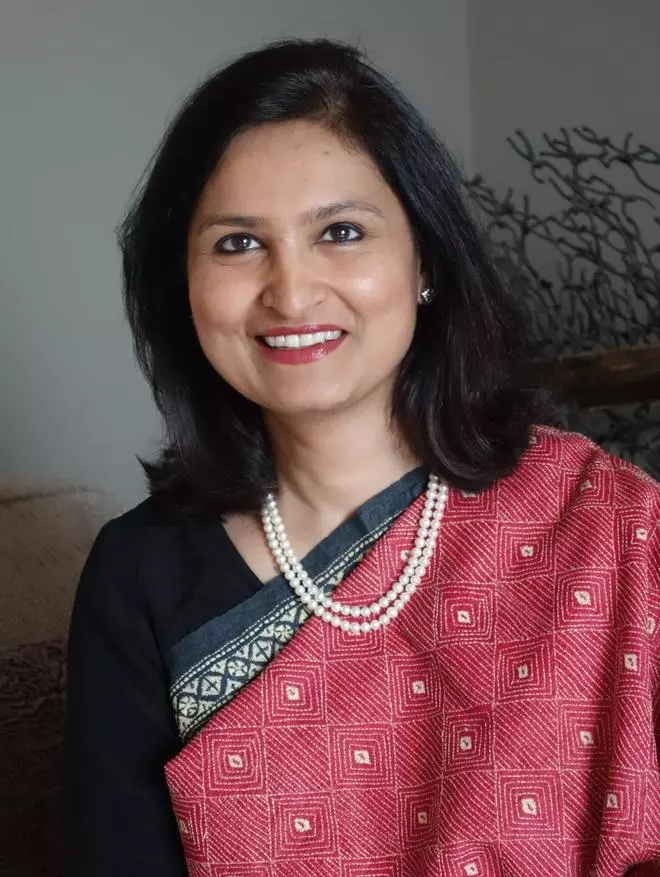Avanaa Capital views sustainability in agriculture as technology innovation and a start-up has to be commercially viable to receive its funding, says its Managing Founder Anjali Bansal.
“We look at climate and sustainability from a technical lens. The definitions we apply are if the technology is for mitigation, adaptation or resilience. Each of these terms has a technical definition according to COP. So we follow that framework,” she told businessline in an online interaction.
Avanaa works differently. It sees 800-1000 deals every year and takes a thesis-led approach. It looks at every sector and builds a thesis on what solutions are required.

Avanaa Capital Managing Founder Anjali Bansal
“... our next investment is in alternative packaging material, sort of deep science material science-based packaging company that is 100 per cent renewable and biodegradable. So we look at problem statements in each of our thesis areas and see what solution is required to solve it,” said Bansal.
Working with NITI Aayog
The solution has to be cost-effective and scalable in India. The venture capital is connected to the corporate space and has several corporate firms who are investors in the fund.
Avanaa works closely with the Ministry of Environment, Forest and Climate Change and the Department for Promotion of Industry and Internal Trade, besides government think-tank NITI Aayog. Because of this, it takes a “very strong ecosystem approach and believes in frugal technology”.
The name Avanaa has been derived from the Sanskrit word Awahan, which means call. It is a “Call to action, take technology innovation, apply it to large problems in India and globally, and you get big outcomes”, said Bansal, who has been in the business for 30-plus years.
Avanaa has a team of investors, operators and an advisory board of senior people in the industry such as S Ramadorai of TCS and Sandeep Singhal. It has large global, multilateral and bilateral investors, including the Global Climate Fund, the world’s largest pool of climate capital.
Next big problem
“We are the first fund that they (GCF) have invested in India. We are very focused on solving the climate issue using technology and innovation. We are an early-stage technology venture fund,” she said.
Stating that climate is the next big problem to solve globally and not just India, she said India is integral to any global climate solution. “That’s why I created theAwana Climate and Sustainability Fund,” said Bansal, who is on the board of Tata Power and Nestle.
The sectors that the venture capital firm invests in are those that contribute to about 90 per cent of India’s emission footprint. Avanaa’s view is that when there is a large problem, the solutions need to be market-scale, not small and niche.
Avanaa looks at solutions such as digital grid, battery storage and other energy storage. “Then we look at agriculture, nature-based solutions, regenerative farming, precision agriculture — again using data AI analytics. The third area we look at is mobility and supply chains,” said Bansal.
4 things that matter
In mobility and supply chains, it looks at electric mobility, circular economy and alternative materials for packaging, particularly for fertilizer. Everything gets measured on what is the innovation, the scalability and climate impact.
In a start-up, Avanaa looks at four things. One, will the firm solve climate issues and how does it solve measurably? Second, what is the innovation and what is different? Third, what is the business model and will it be commercially viable? The fourth aspect it looks at is the quality of the founder and founding team and whether they have the “right background”.
“We do a lot of referencing and with each of these steps, we do a lot of diligence around it,” she said.
Avanaa Capital, which has its two teams located in Mumbai and Bengaluru, is a $100 million-plus fund. “Our plan is to invest in over 25 early-stage climate tech companies. A previous portfolio (of ours) is performing well at this point. We have seven companies in the new fund. We have 13-15 companies that we are actively managing in the portfolio,” she said.
Green transition
Avanaa, which has invested in companies such as Farmart, Eram, Kazam, Sentra and digital climate school Terra, helps these start-ups in market linkage and connects them with large corporates to help large-scale adoption. Then there is a start-up, Eeki Foods, which has come up with better methods of farming that rely less on water and temperature in hot regions such as Kota, Rajasthan.
As India has a majority of smallholder and marginal farmers, small businesses and micro, small and medium enterprises, the venture capital firm considers green transition seriously. “These sectors need cost-effective solutions they can adopt,” said Bansal, who is also on NITI Aayog task force to establish climate finance architecture.
Since India is a developing country, over the next 20-25 years it will need not just carbon policy but also transitioning and adaptation. “This is where sustainability comes in. Sustainability is important and goes hand-in-hand with climate. We have to think about resilience. Our climate solutions have to be inclusive - commercially and environmentally sustainable. They have to be accessible to other segments of society,” the venture capital’s managing founder said.
Some of the start-ups funded by Avanaa Capital have begun to go abroad, she said




Comments
Comments have to be in English, and in full sentences. They cannot be abusive or personal. Please abide by our community guidelines for posting your comments.
We have migrated to a new commenting platform. If you are already a registered user of TheHindu Businessline and logged in, you may continue to engage with our articles. If you do not have an account please register and login to post comments. Users can access their older comments by logging into their accounts on Vuukle.